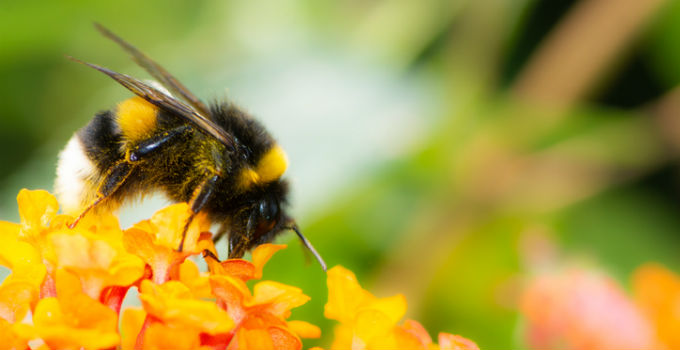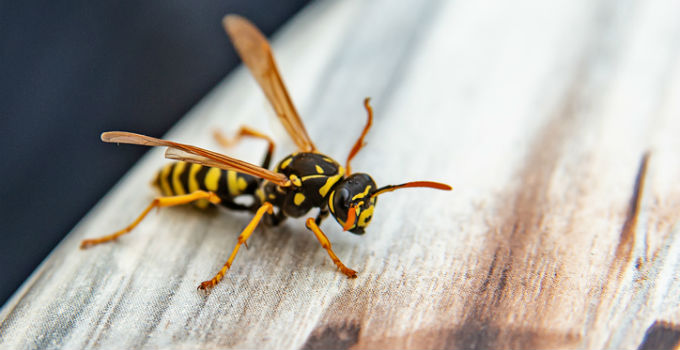Are you worried about getting stung by wasps, yellowjackets and hornets? You aren’t alone. When stinging insects begin nesting on your home or around your property, it can be frustrating and upsetting. How can you get back to enjoying your yard with the looming fear of being stung? Identification is key to begin the battle against bees. The most abundant stinging insects in Northeast PA, Central PA, Lehigh Valley, Pocono Mountains and Western NJ include bees, wasps, yellowjackets and hornets. These flying creatures can all give you a painful sting. Bee stings are an unfortunate part of summertime life in Pennsylvania, but some species can be dangerous, especially to children and people with allergies.
Insects such as bees sting as a means of protection for themselves or the other members of their hive. Pennsylvania also have insects such as black flies, horse flies, and mosquitoes. These insects bite rather than sting, and they usually do so because blood is a food source.
Are Stinging Insects Dangerous?
Some people are highly allergic to the venom that bees, hornets, and wasps give out when they sting. For this reason, stinging insects can be quite dangerous. Even if you are not allergic, stinging insects can still prove hazardous because they protect their nesting area in swarms and can sting multiple times.
Here are some stinging insects that you are likely to encounter in Pennsylvania.
Yellowjackets
Yellowjackets nest in the ground and within wall voids and attics rather than in hanging nests like hornets do. Yellowjackets are related to wasps and hornets. They can be dangerous for several reasons. First of all, unlike most stinging insects, they can sting repeatedly. Also, you are more likely to disturb a nest, since they are in the ground and, therefore, harder to spot and avoid.
Multiple yellow jackets will sting at the same time to protect their nest if it is disturbed. Because of their repeated stinging, these insects are dangerous to people with allergies and children. Even healthy individuals may want to seek medical attention if they get stung many times.
European Paper Wasps
European paper wasps are very common in Pennsylvania. They are easy to spot because of their destructive long, thin waists and honey comb patterned nests. They are not aggressive, but they will sting if they feel threatened. They do, however, make their nests on decks, playsets, picnic tables, under the eaves of your home, and within exterior light fixtures, so unintentionally disturbing these stringers isn’t uncommon.
Bumble Bees

These slow-moving, furry-bodied bees are not very aggressive, but they do sting if they feel threatened. Like yellow jackets, they nest in the ground. Though they seem slow, they will pursue you for longer distances than other bees if they think you have threatened their hive.
White-faced Hornets
These hornets are easy to recognize because of their white head. White-faced hornets are the large pests compared to yellowjackets and paper wasps. They can be aggressive, and multiple insects will sting multiple times if they feel threatened. The nests are often in shrubs or bushes, so you can disturb them while working in the yard or landscaping without realizing it. Hornets also create nests high up in trees, in attics, and under overhangs and eaves on the exterior of homes. Because of this aggressive stinging, these insects are often considered dangerous. However, in the wild, they feed on smaller insects and are necessary for the control of other insect populations.
When Should You Call a Professional
Bees typically become the most aggressive when you come into contact with their nest, whether intentionally or unintentionally. For this reason, it is usually best to hire a pest control professional to handle the removal of a hive or nest.
In Pennsylvania, experts such as Seitz Brothers can remove stinging insects from homes, schools, recreational areas, and commercial buildings. Seitz Bros. offers a variety of solutions, including new green pest control options. To get rid of the stinging insects at your home or business, give us a call or fill out the form on this page for fast technician dispatch.

